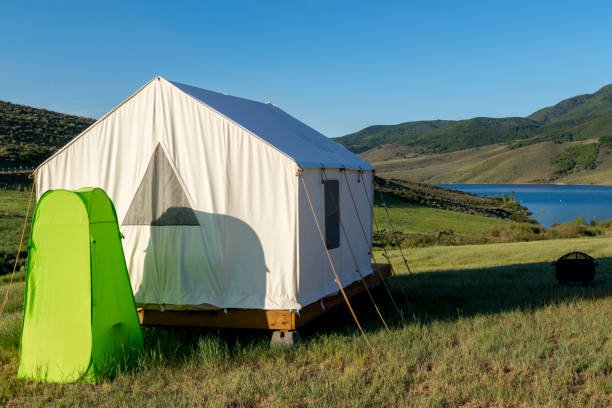Planning an outdoor event can be both exciting and daunting, especially when it comes to finding the perfect Tent Rental solution. Whether you’re hosting a wedding, corporate event, festival, or backyard party, having the right tent can make all the difference in ensuring your guests’ comfort and the overall success of your event.
In this comprehensive guide, we’ll explore everything you need to know about tent rentals near you in the USA, including various tent types, factors to consider, and tips for a seamless rental experience.
Types of Tents Available for Rent
Frame Tents
Frame tents are among the most popular rental options for outdoor events. They are characterized by their sturdy aluminum or steel frames, which provide exceptional support and stability, even in windy conditions. These tents come in various sizes, ranging from small canopies to massive structures that can accommodate hundreds of guests.
Advantages of Frame Tents
- Durability: Frame tents are designed to withstand harsh weather conditions, ensuring your event remains protected.
- Versatility: They can be used for a wide range of events, from weddings and corporate gatherings to festivals and backyard parties.
- Customization: Many rental companies offer customization options, such as sidewalls, flooring, and decorative liners, allowing you to tailor the tent to your specific event needs.
Considerations for Frame Tents
- Setup and Teardown: While frame tents are sturdy, their setup and teardown often require professional assistance, which may incur additional costs.
- Weight and Portability: Due to their robust construction, frame tents can be heavy and less portable than other tent types, making them less suitable for events that require frequent relocation.

Pole Tents
Pole tents, also known as traditional or canvas tents, are a classic choice for weddings, upscale events, and elegant gatherings. These tents feature a central pole or multiple poles supporting a peaked roof, creating a charming and timeless ambiance.
Benefits of Pole Tents
- Aesthetic Appeal: Pole tents offer a sophisticated and elegant appearance, making them a popular choice for formal events.
- Natural Lighting: With their peaked roofs and the ability to incorporate windows or sidewalls, pole tents allow for natural lighting, creating a warm and inviting atmosphere.
- Spacious Interiors: Many pole tents feature high ceilings, providing ample headroom and a sense of grandeur for your event.
Considerations for Pole Tents
- Weather Sensitivity: Pole tents are generally not as weather-resistant as frame tents, making them more susceptible to wind and rain.
- Setup Complexity: The installation of pole tents often requires specialized knowledge and experience, which may necessitate hiring professional installers.
- Limited Customization: While pole tents can be adorned with decorative elements, their overall structure and design may offer fewer customization options compared to other tent types.

High Peak Tents
High peak tents, also known as sailcloth or clearspan tents, are characterized by their dramatic, peaked ceilings and sleek, modern designs. These tents create a stunning visual impact and are often used for upscale events, such as weddings, galas, and corporate functions.
Advantages of High Peak Tents
- Architectural Appeal: High-peak tents offer a unique and visually striking appearance, adding an element of sophistication to any event.
- Spacious Interiors: With their soaring ceilings and open floor plans, high peak tents provide ample space for guest seating, dance floors, and other event elements.
- Natural Lighting: Many high-peak tents incorporate translucent panels or windows, allowing natural light to filter through, creating a bright and airy ambiance.
Considerations for High Peak Tents
- Cost: Due to their complex designs and specialized materials, high-peak tents tend to be more expensive than other tent types.
- Weather Sensitivity: While structurally sound, high-peak tents may be more vulnerable to wind and adverse weather conditions compared to frame tents.
- Setup Requirements: The installation of high-peak tents often requires specialized equipment and expertise, potentially increasing the overall rental cost.

Factors to Consider When Renting a Tent
Event Size and Guest Count
One of the most crucial factors in tent rental is ensuring you have adequate space to accommodate your event size and guest count comfortably. Renting a tent that is too small can lead to overcrowding and discomfort, while a tent that is too large may be an unnecessary expense.
Estimating Tent Size To estimate the appropriate tent size, consider the following factors:
- Guest Count: Determine the total number of expected guests, including any vendors, staff, or service personnel.
- Seating Arrangements: Will your event feature seated or standing guests? If seated, account for table and chair spacing.
- Additional Event Elements: Factor in space requirements for dance floors, stages, bars, buffet lines, and other event components.
Tent Size Guidelines Most rental companies provide tent size guidelines based on guest count and seating arrangements. As a general rule:
- For seated events, allow approximately 10-15 square feet per guest.
- For standing events or cocktail receptions, allocate 6-8 square feet per guest.
- Remember to account for additional space needed for event elements and walkways.
- Event Location and Site Preparation Heading 5: Event Location and Site Preparation: Ensuring a Smooth Setup
The location of your event and the condition of the site play a crucial role in determining the suitability and ease of tent installation. Consider the following factors when selecting your event site:
Site Accessibility and Terrain
- Ensure the site is easily accessible for tent delivery and installation of equipment.
- Evaluate the terrain for levelness, as uneven ground may require additional preparation or flooring.
- Consider overhead obstructions, such as power lines or low-hanging branches, that could interfere with tent setup.
Site Preparation and Permits
- Consult with your rental company about any necessary site preparation, such as grass-cutting or surface grading.
- Obtain any required permits or permissions from local authorities for tent installation and event hosting.
- Inquire about any restrictions or regulations specific to your event location.
Weather Considerations
Outdoor events are subject to the whims of Mother Nature, making it essential to plan for potential weather conditions. Work closely with your tent rental company to determine the appropriate tent type and additional accessories for your specific event location and anticipated weather.
Wind and Rain Protection
- Frame tents and high-peak tents are generally more wind-resistant than pole tents.
- Consider adding sidewalls or rain liners to protect your event from rain or wind.
- Ensure the tent is properly anchored and secured to withstand gusty conditions.
Temperature Control
- Inquire about heating or cooling options, such as portable heaters or air conditioning units, to maintain a comfortable temperature inside the tent.
- Consider the use of fans or air circulation systems for improved ventilation.
- Rental Company Reputation and Services Heading 7: Rental Company Reputation and Services: Choosing the Right Partner
Selecting a reputable and reliable tent rental company is crucial for a successful event. Research and compare different companies based on their experience, customer reviews, and the services they offer.
Company Experience and Expertise
- Look for a company with extensive experience in outdoor event rentals and a proven track record of successful events.
- Inquire about the company’s knowledge of local regulations and permitting requirements.
- Ensure the company has trained and experienced staff for tent setup and teardown.
Additional Services and Amenities
- Consider companies that offer additional services, such as event planning, furniture rentals, lighting, and decor.
- Inquire about delivery, setup, and teardown services to streamline the rental process.
- Evaluate the company’s availability and responsiveness to your needs and inquiries.
Tent Rental Cost Comparison
Here is a table comparing the approximate rental costs of different tent types for a 200-person event:
| Tent Type | Rental Cost Range (USD) |
|---|---|
| Frame Tent | $1,200 – $3,000 |
| Pole Tent | $1,500 – $4,000 |
| High Peak Tent | $2,500 – $6,000 |
*Note: These cost ranges are approximate and may vary depending on your location, rental company, and specific event requirements.
FAQs About Tent Rental
How far in advance should I book a tent rental?
It’s generally recommended to book your tent rental at least 6-12 months in advance for popular event dates, such as peak wedding seasons or major holidays. Early booking ensures availability and allows ample time for planning and coordination.
Can I set up the tent myself, or do I need professional assistance?
While it may be possible to set up smaller tents yourself, most rental companies strongly recommend professional installation for larger tents or complex structures. Professional setup ensures proper anchoring, stability, and adherence to safety regulations.
What happens if the weather becomes unfavorable during my event?
Reputable tent rental companies will have contingency plans in place for adverse weather conditions. This may include securing the tent, providing additional anchoring or weights, or offering alternate indoor venues if necessary. Discuss weather-related policies and procedures with your rental company in advance.
Are tent rentals only for outdoor events?
No, tents can also be used for indoor events, such as trade shows, conventions, or indoor celebrations. Indoor tents can provide additional space, separate areas, or create a unique ambiance within an existing venue.
Can I decorate the rented tent?
Most rental companies allow and encourage decorating the tent to match your event theme and style. However, it’s essential to discuss any decoration plans with the rental company to ensure compliance with their policies and avoid potential damage to the tent.
Are there any restrictions on food or beverage service inside the tent?
While most rental companies allow food and beverage service inside the tents, they may have specific guidelines or restrictions regarding catering setup, open flames, or certain types of equipment. Consult with the rental company and your caterer to ensure compliance with their policies.
What happens if I need to cancel or reschedule my event?
Reputable tent rental companies typically have cancellation and rescheduling policies in place. Review these policies carefully and understand any associated fees or deadlines to avoid unnecessary charges or penalties.
Can I rent additional equipment or furniture from the tent rental company?
Many tent rental companies offer additional equipment and furniture rentals, such as tables, chairs, lighting, dance floors, and staging. Inquiring about these additional services can streamline your event planning and provide a one-stop solution for all your rental needs.
Closing Words
Planning a successful outdoor event requires careful consideration of various factors, and selecting the right tent rental is critical. By understanding the different tent types, considering factors like event size, location, and weather conditions, and choosing a reputable rental company, you can create a memorable and enjoyable experience for your guests.









